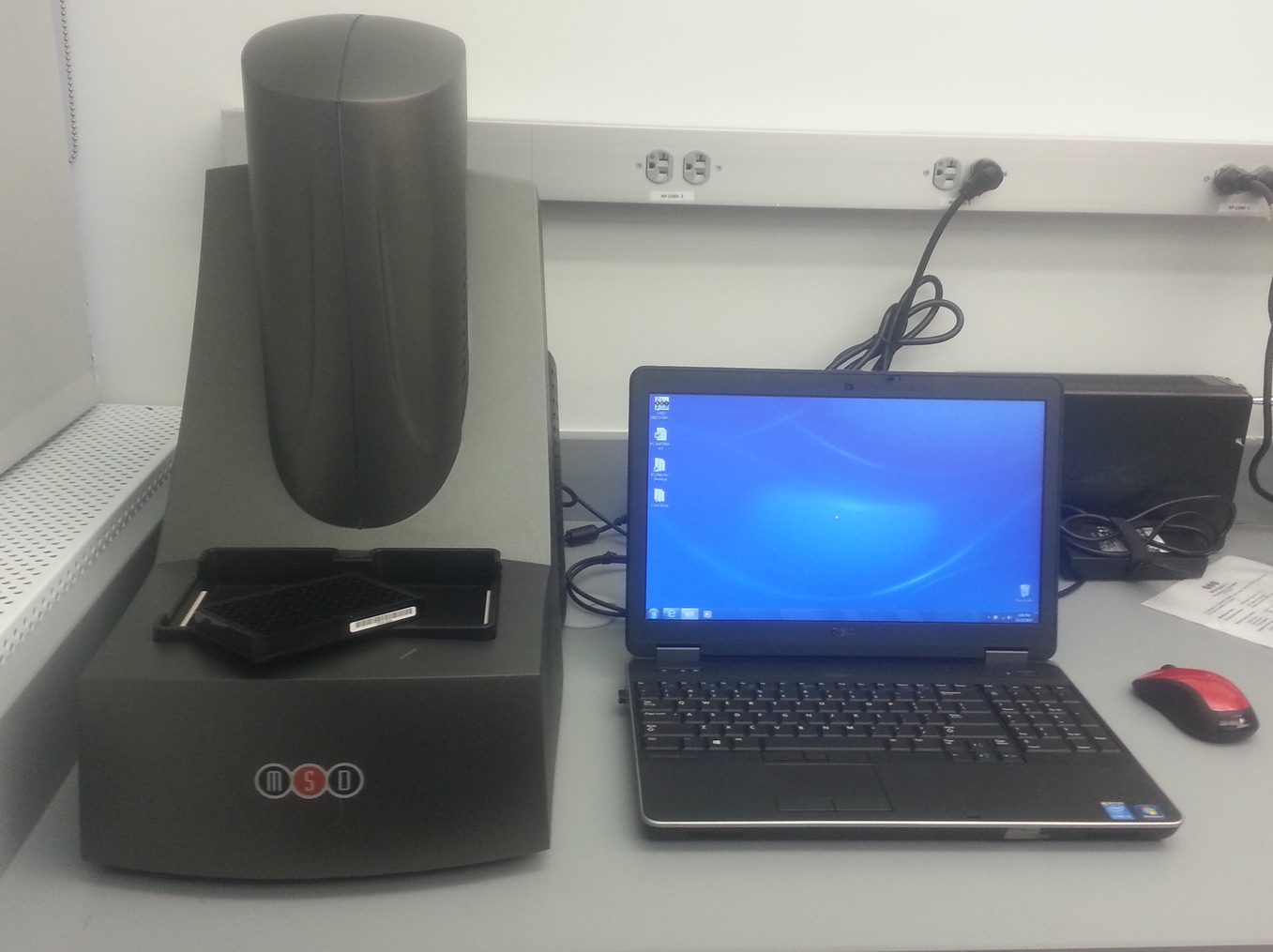 Meso Scale Discovery Quickplex SQ 120
Meso Scale Discovery Quickplex SQ 120Biomarker Core
The Clinical and Translational Research Unit (CTRU) is equipped with a Meso Scale Discovery Quick Plex SQ120 instrument that enables high performance, electrochemiluminescence immunoassays on a variety of biospecimens. The Quick Plex SQ120 has been engineered to measure either a single or multiple biomarkers simultaneously using a small amount of biospecimens. The combination of rapid read times (90 seconds per plate) and the ability to perform multiple, simultaneous tests on a single sample increases productivity, conserves sample, and delivers results quickly. It has exceptional sensitivity, a wide menu of commercially available assay kits and a full line of components and reagents for developing individualized assays. It has a read time of 90 second per plate for the SECTOR plate and three minutes for for the QUICKPLEX plate.
We have run the following panels in our lab:
2-plex Plasma TNFR1, TNFR2
3-plex Plasma TNFR1, TNFR2
4-plex plasma and urine KIM-1, IL-18, MCP-1, YKL-40
7-plex urine UMOD, NGAL, beta-2 microglobulin, osteopontin, cystatin C, albumin
10-plex cytokines plasma: IFN-g, IL-1b, IL-2, IL-4, IL-6, IL-8, IL-10, IL-12p70, IL-13, TNF-a
7-plex angiogenesis panel: FGF (basic), Flt-1, PIGF, Tie-2, VEGF-A, VEGF-C, VEGF-D
1-plex endostatin
Other combinations are possible. We also run single ELISA kits for the rare biomarker that is not compatible with the MSD SQ120.
We perform fee-for-service work for Sinai investigators as well as external collaborators
Chronic Kidney Disease Registry (PIs: Nadkarni, Coca)
We have created a Mount Sinai Health System wide registry that captures longitudinal, granular information on all of the chronic kidney disease patients in the health system. This registry will be used for quality control and improvement. In a deidentified manner, we also plan to use this registry to study as yet unanswered questions about the epidemiology of kidney disease and its complications. There are over 120,000 unique patients in the CKD Registry as of June 2018.
Statistical Core
We have a dedicated statistical team with significant expertise in analysis of large datasets, electronic medical records and clinical informatics. The team also has expertise in developing and implementing electronic phenotyping algorithms to leverage the wealth of clinical information in the electronic medical records, as well as machine learning capabilities.
Systematic Review Core
We have a team with significant experience in design and conduct of systematic reviews and quantitative meta-analysis. Members of this core have published over 40 systematic reviews on kidney and cardiovascular disease in high-impact journals including Journal of American Medical Association, Journal of American Society of Nephrology, Clinical Journal of American Society of Nephrology, AIDS and PLOS One.
